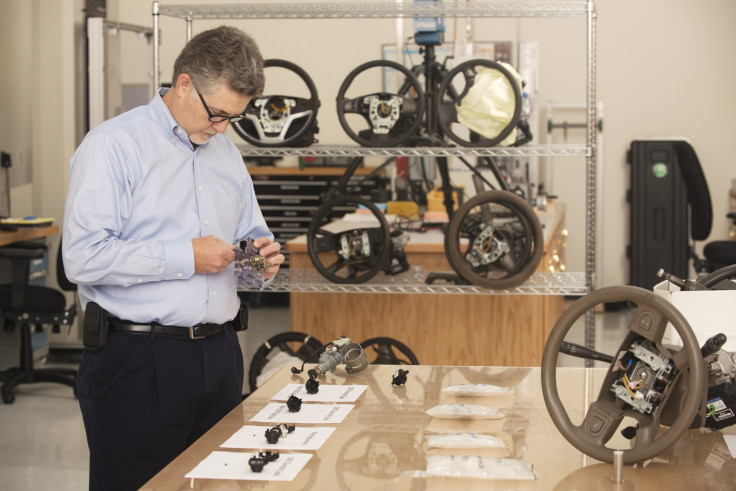Widow Claims General Motors Cooked Up Story Of Her 'Murderous' Husband To Cover Up Chevrolet Defect

A woman whose husband and four children were killed in a car crash in 2005 says General Motors accused her husband of being a suicidal murderer to avoid paying out on a lawsuit she previously brought against the automaker.
Adam Powledge was taking his four children to school on I-45 in Houston when the Chevy Malibu he was driving slammed straight into a pole in the median of the highway, splitting the car in two and igniting it. Powledge and the four children were killed.
Adam’s wife, Doris Phillips, says an electrical failure in the car caused Powledge to lose control of the car. GM has a different story, as Phillips points out in her new complaint:
“A cornerstone of GM's legal defense to the 2007 lawsuit was a particularly nefarious accusation -- that Adam Powledge was not the victim of a GM defect, but was a murderer and intended to kill himself and his children. This defense was used throughout the litigation as a means of undermining Dori's case.”
GM argued that Phillips' accusation of a defect was “implausible,” that there was no defect, and noted that there wasn’t a recall as part of its evidence. There’s one problem with that argument: GM announced a recall in February for a similar problem to the one Phillips’ argues caused her husband’s fatal crash.
Furthermore, Phillips contends that GM purposely drew out the lawsuit and a number of others during its 2009 bankruptcy and subsequent reordering. When the federal government bailed GM out, the “new” company would not be held liable for lawsuits before 2009. That left Phillips and others with significantly smaller settlements than they would have gotten prior to the bankruptcy.
“It appears to have been a calculated move by General Motors to use a legitimate financial crisis to avoid what would be a costly recall and tort liability,” Phillip’s lawyer Joshua Davis said.
The recall prompted a number of lawsuits against the “new” GM, despite the companies supposed immunity. A number of lawsuits contend that GM knew about the defect as far back as 2004, but held out on a recall to avoid lawsuits. Last Monday, GM filed for protection from lawsuits like Phillips’ in a New York bankruptcy court, arguing that they are not liable for issues from before the bankruptcy.
U.S. Bankruptcy Judge Robert Gerber has called for a procedural conference on May 2 to work out exactly how these cases should be handled, but he said “no substantive matter will be decided,” according to Reuters.
Phillips is seeking $300 million in damages for fraud, conspiracy, infliction of emotional distress and racketeering. GM is not responding to requests sent without a company letterhead or not addressed to a specific corporate department, which IBTimes is investigating.
Find out more through KRIV FOX 26.
© Copyright IBTimes 2025. All rights reserved.






















